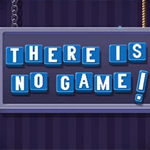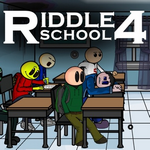
deal or no deal Unblocked
## The Enduring Allure of Deal or No Deal: More Than Just a Numbers Game
Deal or No Deal. The name alone conjures images of tense moments, agonizing decisions, and the tantalizing possibility of walking away with a life-changing sum or, conversely, with nothing at all. This seemingly simple game show, with its bright lights, dramatic music, and the ever-present briefcase, has captured audiences worldwide for years, transcending its straightforward premise. But what is it about Deal or No Deal that keeps us hooked?
At its core, the game is deceptively simple. A contestant selects a briefcase containing a predetermined amount of money, ranging from a paltry sum to a life-altering jackpot. Throughout the game, the contestant strategically eliminates other briefcases, revealing their contents, while the "banker" – a mysterious, unseen entity – offers increasingly tempting (or sometimes insulting) sums of money to "deal" – that is, to walk away with the offered amount and forego the chance at the jackpot. The tension mounts with each briefcase opened, the possibilities narrowing, and the pressure to make a gut-wrenching decision intensifying.
The appeal of Deal or No Deal goes beyond the potential for financial gain. It taps into several psychological factors:
* Risk and Reward: The core mechanic is a masterful exploration of risk aversion versus risk-seeking behavior. The allure of the jackpot is constantly weighed against the increasingly certain possibility of receiving a far smaller sum. The game subtly forces contestants (and viewers) to confront their own tolerance for risk.
* Probability and Statistics: While not overtly mathematical, the game engages viewers in subconscious probability calculations. As briefcases are eliminated, viewers (and contestants) grapple with shifting probabilities and the evolving likelihood of winning the grand prize.
* Emotional Rollercoaster: The dramatic build-up, the fluctuating offers from the banker, and the emotional toll on the contestant create a compelling narrative. Viewers become invested in the contestant's journey, experiencing their hopes, fears, and ultimately, their triumph or disappointment.
* The Banker's Enigma: The unseen banker adds an intriguing element of mystery and manipulation. Their offers are often perceived as strategic and psychologically manipulative, adding another layer to the decision-making process.
However, Deal or No Deal has also faced criticism. Some argue that the game's focus on potentially life-changing sums of money promotes unrealistic expectations and can be financially irresponsible. The psychological pressure exerted on contestants has also been a source of concern.
Despite these criticisms, Deal or No Deal continues to resonate with audiences. Its enduring appeal lies not just in the chance of winning a fortune, but in the fascinating exploration of human psychology, the tension of making high-stakes decisions under pressure, and the compelling narrative arc that unfolds with each briefcase opened. It’s a game that reminds us that sometimes, the greatest thrill lies not in the outcome, but in the journey itself.







































